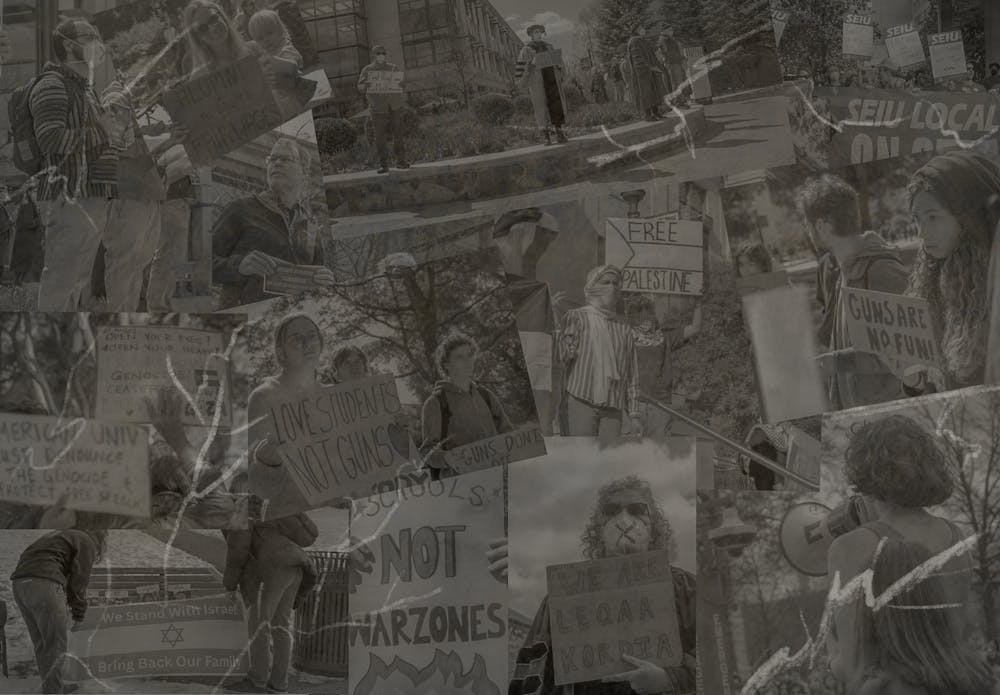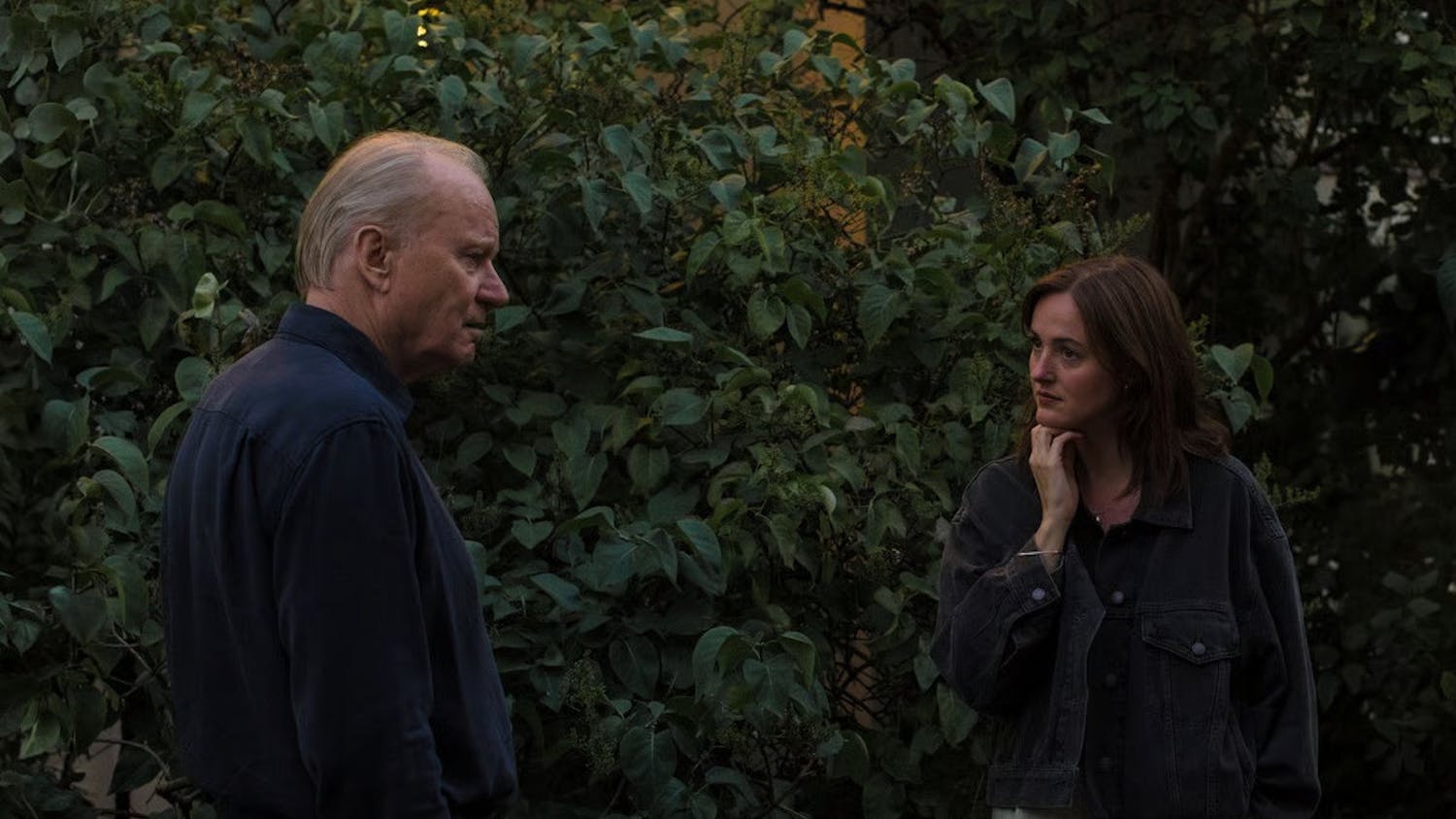From the Newsstands: This story appeared in The Eagle's April 2025 print edition. You can find the digital version here.
Emily Sohl has seen on-campus protests ranging from the 2022 campus walkout protesting against sexual violence to protests over the war in Gaza at American University, but recently she has started to lose hope.
Sohl, a senior in the School of Communication and the Training Lead for Sunrise AU, is one of many students at the University who fear they will be punished or silenced for protesting. This has led to an increase in disillusionment with the University administration and other individuals on campus amongst some student activists.
Recently, Sohl said Sunrise AU has seen pushback against protests, including from its faculty advisor, who went from “someone that was involved in our protests to encouraging us not to protest.”
Valentina Aquila, Sunrise AU’s faculty advisor, said she received an email from the University in fall 2024 with resources on how students can best demonstrate on campus. Aquila then spoke with club members and asked them to think about achieving their intended goal while possibly adhering to the requests.
“It’s just kind of like the fear of getting shut down; whatever we try to do, we’re just gonna be discouraged to act on it, and if it does happen, it’s gonna get shut down immediately,” Sohl said.
Sohl said an anti-establishment sentiment often arises on college campuses, since students are moving into adulthood and “seeing power for what it is.”
College students across the country believed that 58 percent of their institution’s student body was somewhat politically active, with 17 percent of those surveyed disagreeing that their college did a good job of fostering respect for diverse political opinions, according to SurveyUSA.
Adah Nordan, a sophomore in the College of Arts and Sciences and the social media manager for No More AU, said the mental price of protesting is still high, even as she recognized that she, as an ally, was not doing the brunt work in protests.
Former University President Sylvia Burwell banned indoor protests on Jan. 25, 2024. President Jonathan Alger reversed the ban in an Aug. 13, 2024, email. New expression policies, including the Facilities Use Policy and Social Media Policy, were implemented on Oct. 4, 2024.
Elizabeth Deal, assistant vice president and deputy chief communications officer, directed those concerned with University decisions to the appeals process in the Student Conduct Code, stressing the importance of students speaking up “in the right way” because “that can make an impact.”
“They need to actually take in, consider and care about what the students are saying,” said Tanishka Khanna, a sophomore in the School of International Service, vice president of No More AU and a Title IX advisor with the It’s On Us Lighten the Load initiative.
Correction: A previous version of this article incorrectly stated that President Jonathan Alger “reserved” the Jan. 25, 2024 directives that banned indoor protesting. It has been updated to accurately reflect that President Alger “reversed” the ban.
This article was edited by Cara Halford, Tyler Davis, and Abigail Turner. Copy editing done by Luna Jinks, Emma Brown, Sabine Kanter-Huchting, Ella Rousseau, Ariana Kavoossi, Hannah Langenfeld and Nicole Kariuki.





